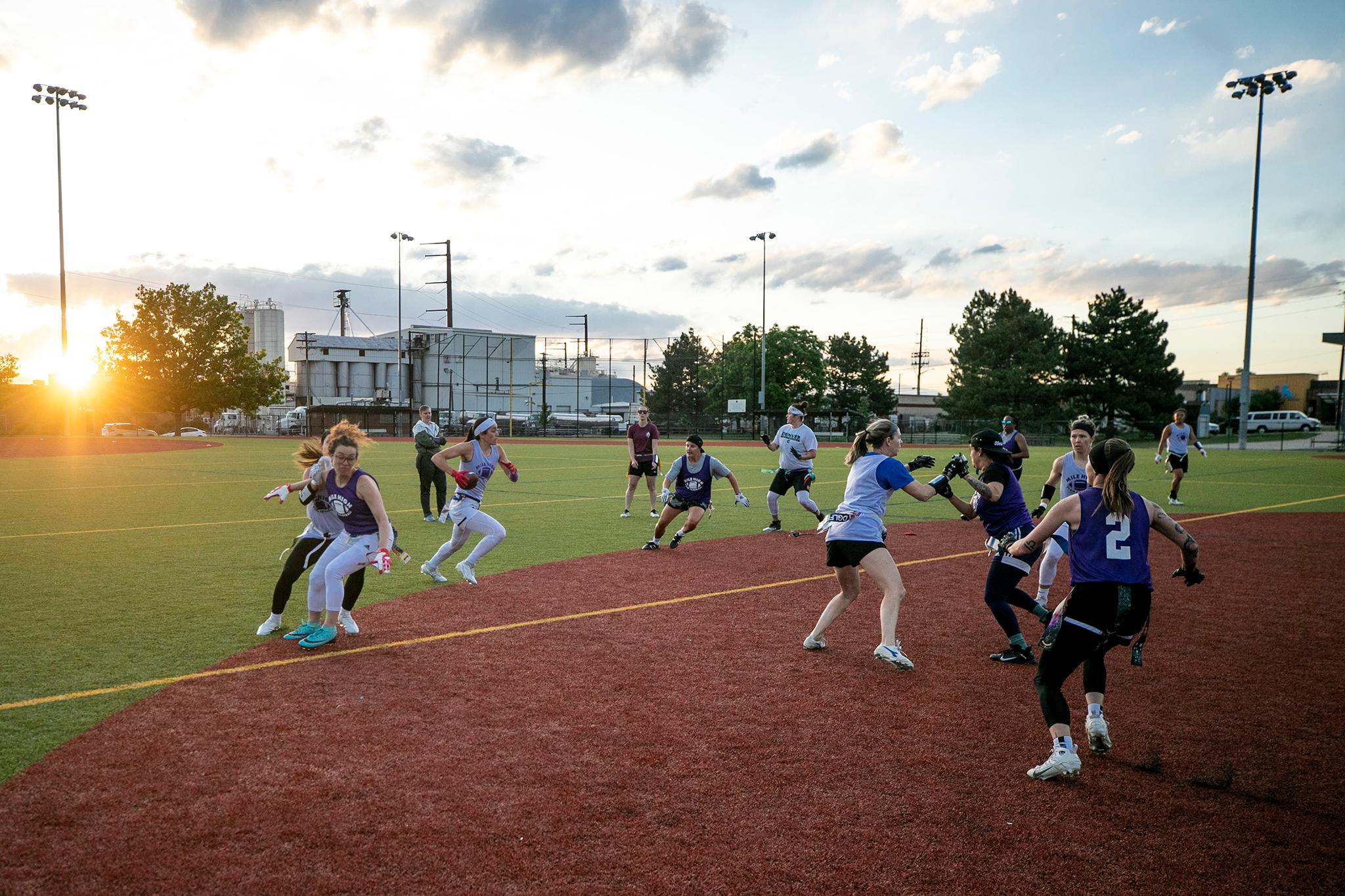On a warm night in April, teammates on Mile High Club flag football team scrimmaged at Valverde Park. They practiced running some of their plays while other teammates cheered on from the sidelines.
The team competes in the women’s+ league – inclusive of women, trans and nonbinary people – of the National Gay Flag Football League. The athletes are training for the Annual Gay Bowl taking place in Austin this fall. Mile High Club has an 11 year win streak to maintain.
When that streak started, Gay Bowl hosted just a handful of women’s+ teams, and Mile High Club could just barely fill its roster. In recent years, 32 teams play at the tournament, and Denver’s team has had to cut prospective players.
Flag football has grown as a sport in recent years as a safer alternative to regular football for boys, as an entry point into the typically male-dominated sport for girls, and as a space for LGBTQ+ community. Last month, after a popular two-year pilot program in local high schools, Colorado became the 11th state to make girls flag football an officially sanctioned sport. At the professional level, flag football will become the latest sport to join the Olympics in 2028.
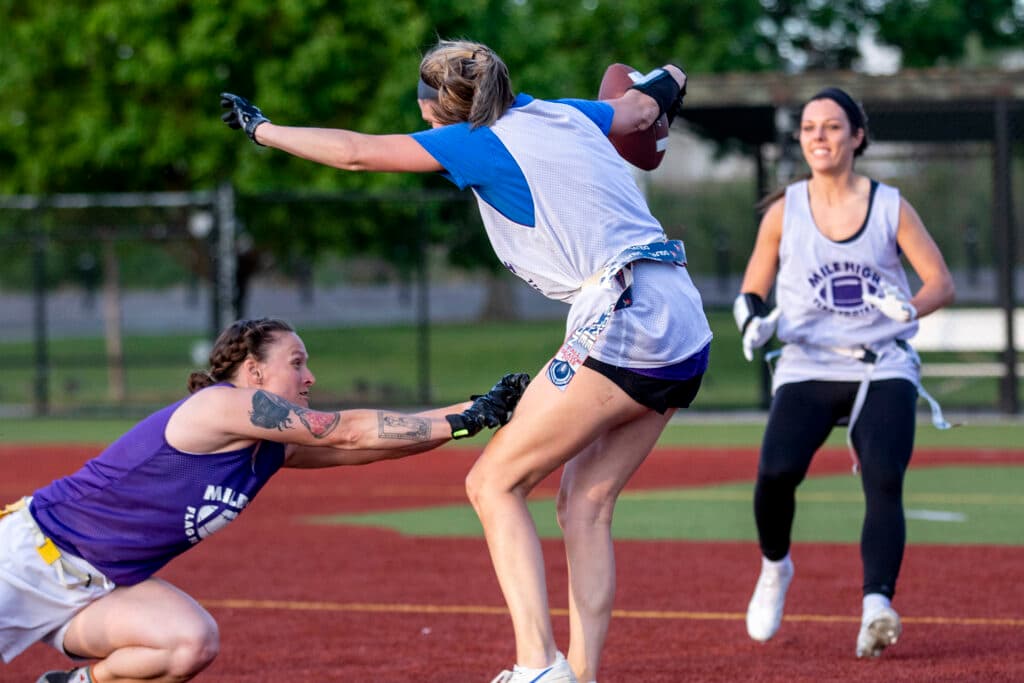
One of those flag football hopefuls is Mile High Club quarterback Lacey Abell, who recently made the U.S. national team and hopes to travel to Finland to represent the U.S. this summer.
Growing up in Wisconsin, football was always Abell’s favorite sport, but there were no opportunities to play it competitively.
“Of course, we always played backyard football with kids in the neighborhood,” she said.
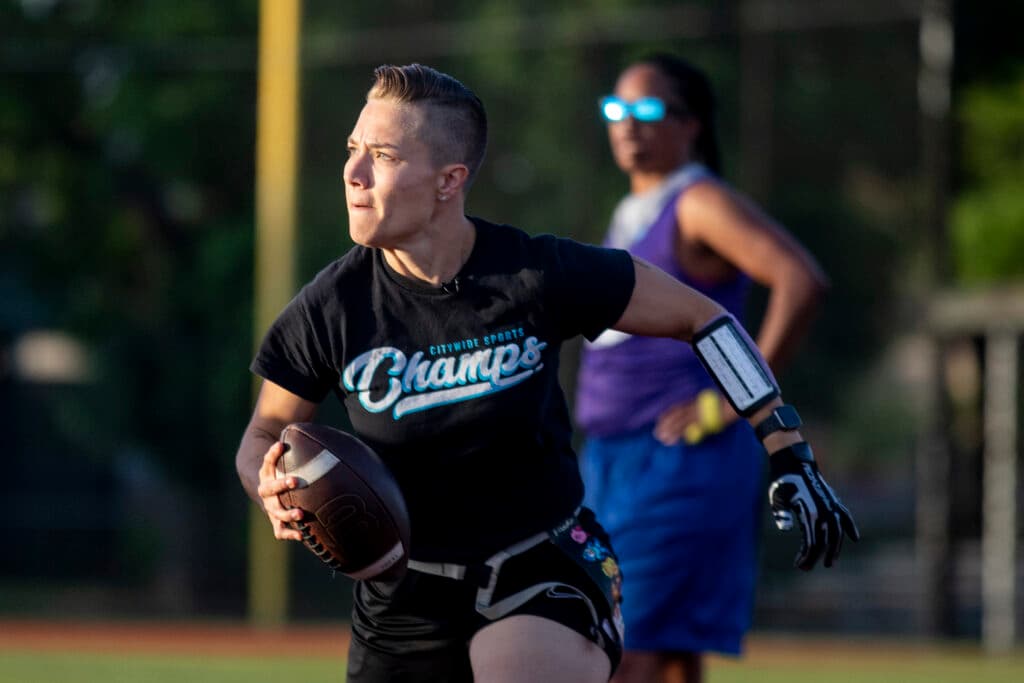
Abell found football when she moved to Denver a few years ago, playing tackle before joining the Denver Gay Lesbian Flag Football League. She joined Mile High Club, one of the travel arms of the league, where she polished her quarterback skills until she had the opportunity to try out for USA Football earlier this year.
“That felt incredible,” Abell said about making U.S. team. “That was probably one of the more exciting phone calls I've had in a long time.”
While 2028 is four years away, Abell said the addition of flag football to the Olympics has created some new goals now that she’s made the U.S. team.
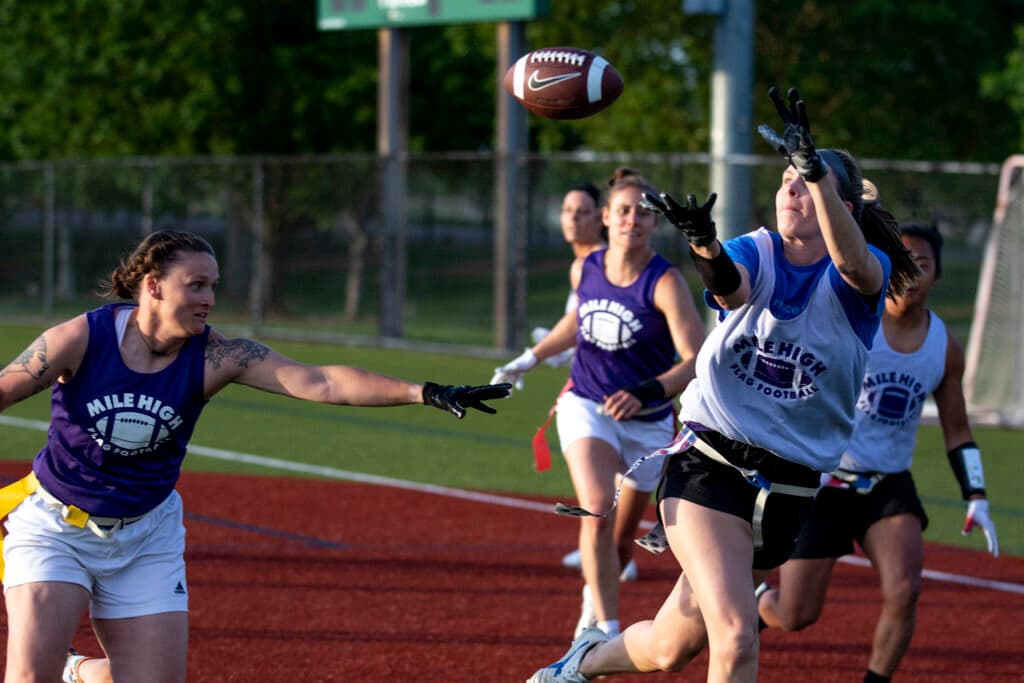
Until then, on top of playing with Mile High Club and USA Football (and her full time job as a physical therapist), Abell is an assistant flag football coach at Arvada West High School. The school was one of three that took part in the flag football pilot program the past two years, and the team that won the girls flag football state championship this year.
“Watching them win the state title was probably, if not more exciting than some of the championships I've ever won,” Abell said. “It was incredible seeing them go from some of the girls who have never played football before to going on and winning a state title.”
Abell said it’s exciting to see opportunities for girls playing flag football that she never had growing up.
Some of the girls at Arvada West High School have received offers to play in college, where the sport is also growing for women.
Saylor Swanson, a junior and the team’s quarterback, grew up playing football with her dad and brothers in her backyard. She says receiving an offer to play a sport in college has been a lifelong dream of hers, but she always assumed it would be for a sport like diving or gymnastics — sports she likes, but don’t give her the same sense of community flag football does.
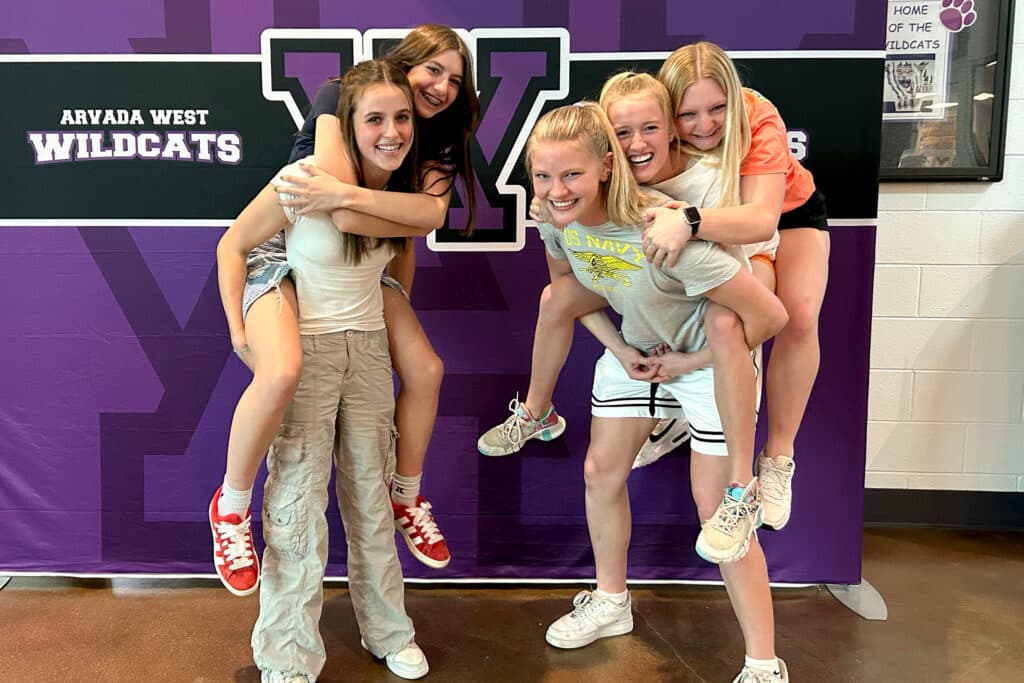
“It’s the one [sport] that I have the most fun with and I want to try to continue with that with my future,” Swanson said. “I think since it's a new sport, it offers a new opportunity for a bunch of girls, it's opening a bunch of things. People have always thought football is a man's sport, but it's not anymore.”
Alex Antill, a freshman on the team, says that like Swanson, she also developed an interest in football after playing with her dad and brothers. For her, she says the best part of the last season was seeing her dad’s reaction to her and her teammates winning the state championship.
“As soon as we won, I definitely looked towards my dad just because it was his idea for me to play flag football,” said the freshman. “It was really cool. He said after we won state, ‘Oh, I always wanted a state champion football player, I just never thought it would be my daughter.’”
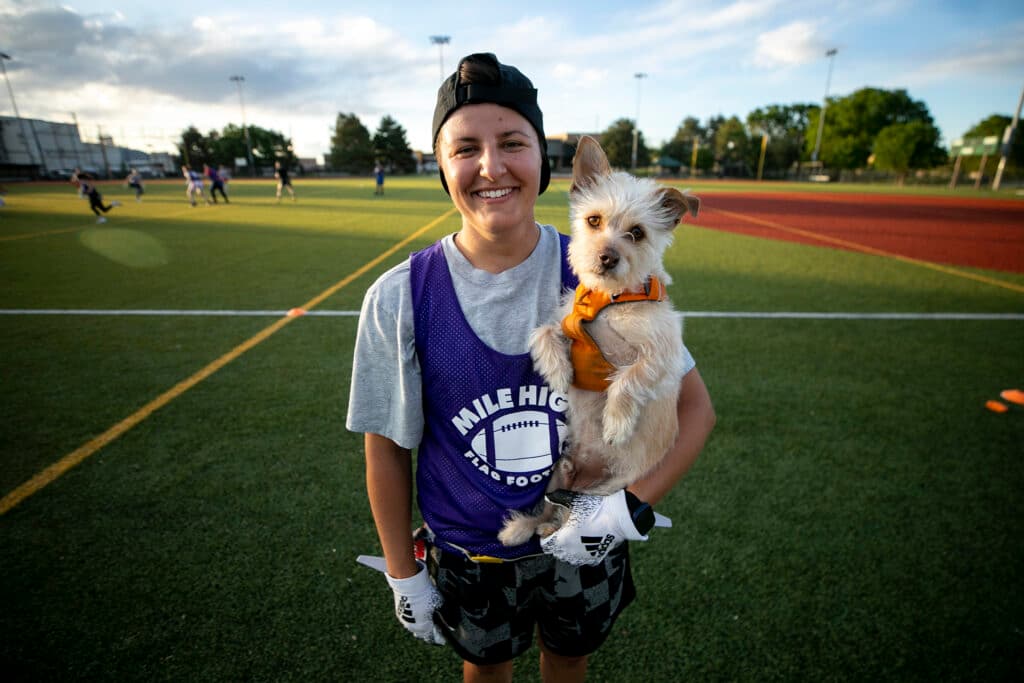
At the adult level in Denver, many Mile High Club players came to flag football not just for the sport but for a sense of camaraderie.
“I was looking for more friends in the LGBTQ community,” said Mile High Club team member Frankie Carrera. “This community is super tight-knit, everybody's very positive, always lifting each other up, making each other better, always helping each other out, and it's just fun to play, get out there.”

Every single person Denverite interviewed at Mile High Club’s practice emphasized the team’s community.
Kelly Wallner teaches middle school PE and coaches flag football. She found the sport after playing college basketball.
“I just really like to be physical, so for me to just be able to come out here and block and push people around is just fantastic for me,” she said.
But the atmosphere is a big part of it, especially after moving to a new city.
“When I first moved out here, to be able to find a team, find especially a safe place where majority of our team is a part of the LGBTQ community, it's a really safe place,” Wallner said.
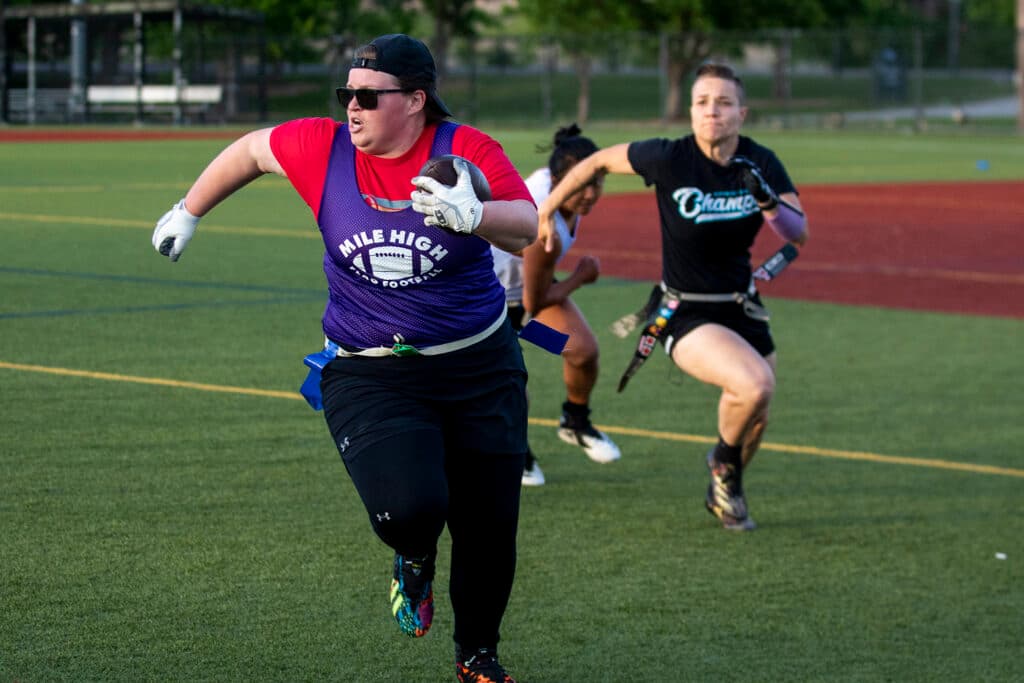
LP Picard helps fundraise for the team by organizing drag shows involving players. She works as a teaching associate professor at University of Denver, where her academic research includes the rhetoric of drag.
“There's something really special about having friendships through these competitive experiences, because winning together feels absolutely incredible because you're doing it with your favorite people,” Picard said. “And when things don't go well, your friends are there to pick you up.”
As the sport grows, one former Mile High Club captain is working to further flag football nationally.
Jodie Turner joined the team in 2012, a few years after she moved to Denver from Louisiana. She captained Mile High Club until last year, and now serves as the National Gay Flag Football League’s Director of Tournaments in addition to her full-time job in IT for the Adams County School District.
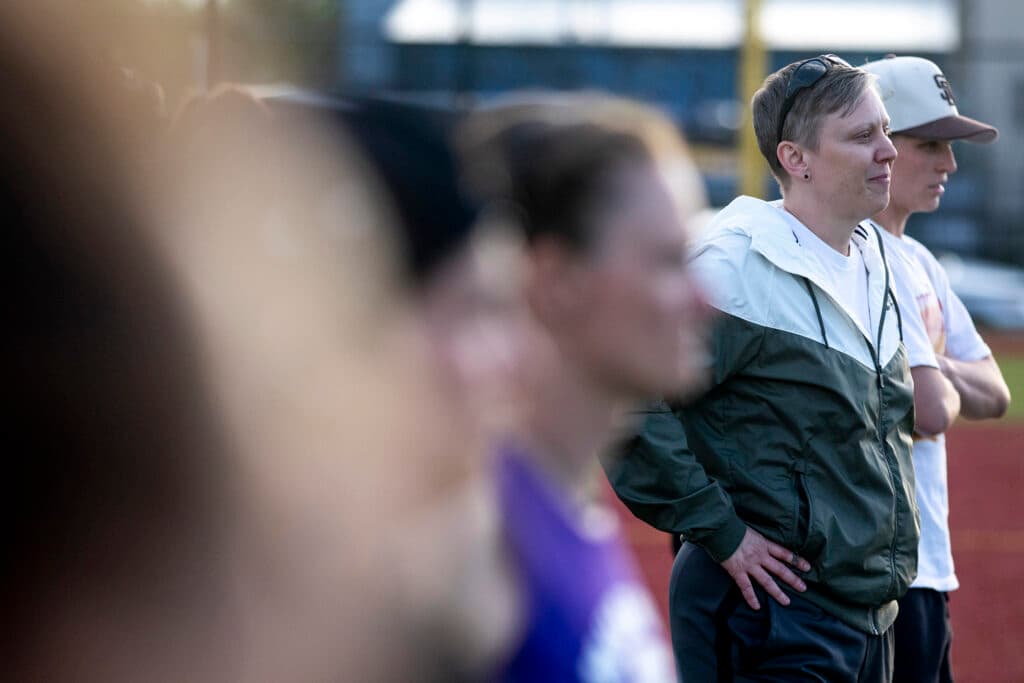
The National Gay Flag Football League has the support of the NFL, and a few years ago, Turner got to announce a draft pick. Locally, the Denver Broncos have helped fund girls flag football at the high school level.
“All our lives we've been told that football is a male sport,” Turner said. “It is very empowering and amazing to see [women’s sports] grow, and to see the attention that it's getting, not just on the national stage, on the world stage.”
Turner’s favorite moment in her flag football career came when she won her first Gay Bowl in 2013. A close second: when she met her wife, who played on the team in 2019. The two are expecting a baby this summer.
“For a long time I struggled with if I was ever going to find a partner that supported this side of my life,” Turner said.
She said that the community that comes with the Denver Gay Lesbian Flag Football League sets the program apart.
“To me, being an athlete is one thing, but feeling acceptance, and that you can live your authentic self and play sports and compete on a very high level, it all starts with the community piece,” Turner said. “Everyone should and deserves a place to be able to play where they feel like they belong.”
